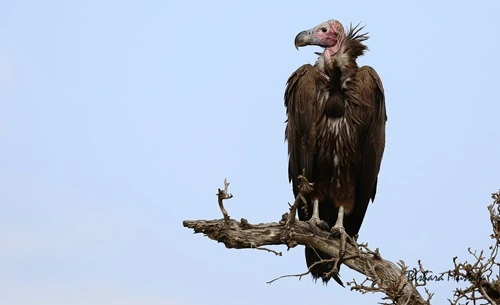Yes, it is illegal to kill a buzzard in the United States without proper authorization. Buzzards, commonly known as vultures in the U.S., are protected under federal law, and harming them can lead to significant legal penalties.
Legal Protections for Buzzards
In the United States, the term “buzzard” typically refers to vultures, including species like the Turkey Vulture (Cathartes aura) and the Black Vulture (Coragyps atratus). These birds are protected under the Migratory Bird Treaty Act (MBTA) of 1918, which makes it unlawful to pursue, hunt, take, capture, kill, or possess migratory birds without appropriate permits.
Penalties for Violating the MBTA
Violating the MBTA by killing a buzzard can result in severe penalties:
- Fines: Individuals may face fines up to $15,000 per offense.
- Imprisonment: Offenders can be sentenced to up to six months in prison.
These penalties underscore the importance of adhering to wildlife protection laws.
State Regulations
In addition to federal protections, many states have laws safeguarding buzzards and other vulture species. For example:
- Florida: Killing vultures is a second-degree misdemeanor, punishable by a $500 fine and up to 60 days in jail.
- Texas: Hunting or killing vultures without a permit can result in fines up to $500.
It’s essential to be aware of both federal and state regulations to ensure compliance.
Permits and Exceptions
While the MBTA provides broad protections, there are circumstances where permits may be issued:
- Depredation Permits: Property owners experiencing significant issues with buzzards, such as livestock predation or property damage, can apply for depredation permits through the U.S. Fish and Wildlife Service. These permits allow for the legal taking of specific birds causing problems.
- State-Issued Permits: Some states have provisions for issuing permits to address nuisance birds. For instance, the Tennessee Farm Bureau Federation has obtained statewide depredation permits to assist livestock producers facing issues with Black Vultures.
It’s crucial to secure the appropriate permits before taking any action against protected birds to avoid legal repercussions.
Conservation and Ethical Considerations
Buzzards play a vital role in ecosystems by consuming carrion, which helps prevent the spread of disease. Their protected status reflects their ecological importance. Before seeking permits for lethal control, consider non-lethal methods such as:
- Habitat Modification: Removing food sources and roosting sites can deter buzzards from frequenting certain areas.
- Harassment Techniques: Using loud noises, visual deterrents, or other harassment methods can encourage buzzards to relocate without harming them.
Employing these strategies can mitigate conflicts while preserving the ecological benefits that buzzards provide.
Recent Developments
As of 2024, there is a heightened focus on balancing human activities with wildlife conservation. The U.S. Fish and Wildlife Service continues to review and adjust regulations to ensure they align with current conservation goals and address emerging challenges. Staying informed about the latest regulations and guidelines is essential for compliance and conservation efforts.
Related FAQs
Q1. Can I kill a buzzard if it’s attacking my livestock?
Ans: No, not without a depredation permit. Buzzards are protected under federal law, and killing them without authorization can lead to legal penalties. Apply for a depredation permit through the U.S. Fish and Wildlife Service if you’re experiencing issues.
Q2. Are there non-lethal ways to deter buzzards?
Ans: Yes, methods such as habitat modification, using visual or auditory deterrents, and removing food sources can effectively discourage buzzards from roosting or foraging in specific areas.
Q3. What should I do if I find a dead buzzard on my property?
Ans: Do not handle the bird, as possession of any part of a protected species without a permit is illegal. Contact local wildlife authorities for guidance on proper disposal.
Q4. How can I apply for a depredation permit?
Ans: Visit the U.S. Fish and Wildlife Service’s website or contact your state’s wildlife agency for information on the application process and requirements for obtaining a depredation permit.
Q5. What are the consequences of violating the Migratory Bird Treaty Act?
Ans: Penalties include fines up to $15,000 and imprisonment for up to six months per offense. State laws may impose additional penalties.


